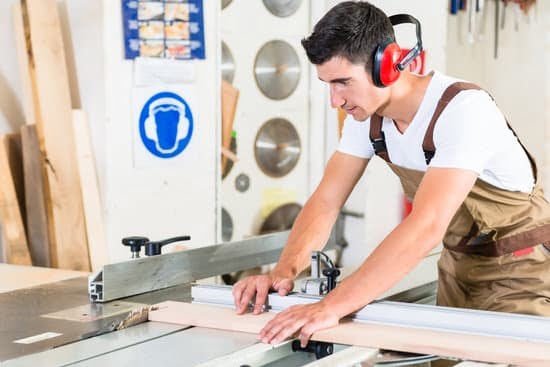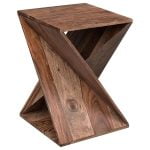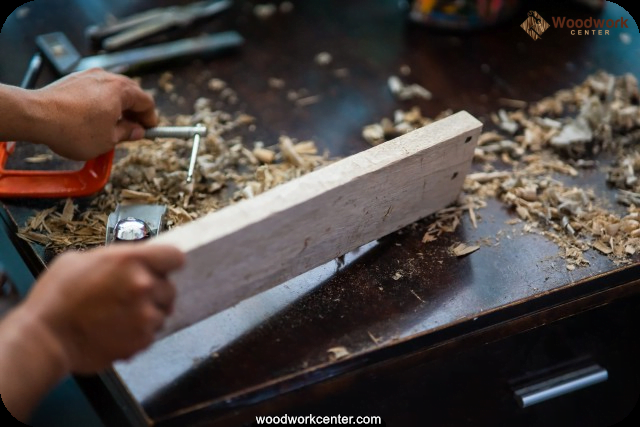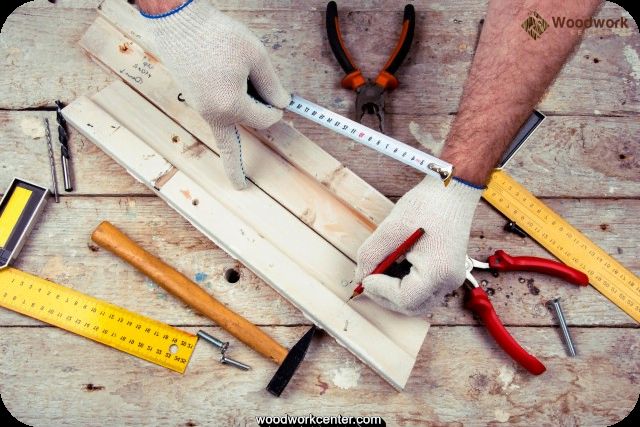Are you interested in getting started with woodworking but not sure where to begin? If so, a beginners woodworking set is the perfect place to start.
Woodworking is an enjoyable and practical skill that can lead to creating beautiful, custom pieces for your home or as gifts for friends and family. In this article, we will cover the basics of woodworking, essential tools needed for beginners, tips for choosing the right wood, safety guidelines, fundamental techniques, building your first project, common mistakes to avoid, and resources for further learning.
Woodworking is an ancient craft that involves shaping and manipulating wood to create functional and decorative objects. Whether you are interested in building furniture, shelves, or smaller items like cutting boards or picture frames, having a solid understanding of the basics is crucial. With a beginners woodworking set at your disposal, you’ll have everything you need to start honing your skills and creating unique pieces that reflect your personal style.
In the following sections, we will explore the essential tools every beginner should have in their woodworking set. We will also delve into how to choose the right wood for different projects and provide safety tips for using woodworking tools. Additionally, we’ll cover basic woodworking techniques and offer guidance on building your first DIY project. Whether you’re a complete novice or have some experience with woodworking, this guide will help you get started on your woodworking journey.
Essential Tools for Beginners Woodworking Set
When starting out in woodworking, having the right tools is essential to ensure that you can complete your projects effectively and safely. Here are some must-have tools for beginners woodworking set:
1. Measuring Tools: Accurate measurements are crucial in woodworking, so it’s important to have a tape measure, combination square, and marking gauge to ensure precision in your projects.
2. Cutting Tools: A set of high-quality saws is essential for cutting wood. A handsaw, jigsaw, circular saw, and miter saw are all valuable additions to your toolkit.
3. Joinery Tools: For creating strong joints in your woodworking projects, you’ll need tools such as a hammer, chisels, screwdrivers, and a cordless drill with drill bits.
4. Finishing Tools: Sandpaper, a smoothing plane, and wood finish are all necessary for giving your projects a polished and professional look.
5. Safety Gear: Safety should always be a priority when working with woodworking tools. Ear protection, eye goggles, and dust masks are essential items to have on hand to protect yourself from potential hazards.
As you start building your collection of woodworking tools, it’s important to invest in quality items that will last and make your crafting experience more enjoyable and productive. Starting with these essential tools will give you a solid foundation for tackling various types of woodworking projects as you continue to learn and develop your skills with beginner woodworking set.
Choosing the Right Wood for Your Projects
When starting out with woodworking, one of the most important aspects to consider is choosing the right type of wood for your projects. The type of wood you choose will determine the overall appearance, durability, and workability of your final piece. As a beginner, it’s essential to familiarize yourself with different types of wood and their characteristics before starting any project.
Before selecting the wood for your project, it’s important to consider factors such as the intended use of the item, the design you have in mind, and your budget. For example, if you’re planning to build a sturdy piece of furniture that will withstand heavy use, hardwoods such as oak, maple, or cherry would be an excellent choice.
On the other hand, if you’re working on a project that requires intricate detailing or carving, a softer wood like pine or cedar may be more suitable.
In addition to considering the type of wood, it’s also crucial to pay attention to the grain pattern and color of the wood. These characteristics can greatly impact the overall look and feel of your project.
A good tip for beginners is to visit a local lumberyard or woodworking supply store to see and feel different types of wood in person before making a decision. This hands-on approach will give you a better understanding of how each type of wood will behave when worked with using your beginners woodworking set.
Safety Tips for Using Woodworking Tools
Woodworking can be a fun and rewarding hobby, but it’s important to make safety a priority when using woodworking tools. Whether you’re just starting out with your beginners woodworking set or you’re a more experienced woodworker, following some basic safety tips can help prevent accidents and injuries in the workshop.
First and foremost, always wear appropriate safety gear when working with woodworking tools. This includes safety goggles to protect your eyes from flying debris, ear protection to guard against loud noises, and a respirator or dust mask to prevent inhalation of sawdust and other particles. Additionally, wearing fitted clothing and avoiding loose accessories can help prevent accidents involving clothing getting caught in moving parts of machinery.
Another important aspect of woodworking tool safety is the proper maintenance and inspection of your tools. Keep your tools clean and well-maintained to ensure they are in good working condition. Inspect each tool before use to check for any damage or wear that may compromise its safety. And always follow the manufacturer’s instructions for proper use and maintenance of each tool in your beginners woodworking set.
Practice safe handling of hand tools as well. Keep your work area tidy to avoid tripping hazards, and never carry sharp or pointed hand tools loosely in your pocket. In addition, always use clamps or a vice to secure your workpiece when cutting or shaping it with hand tools such as saws or chisels, as this can help prevent slipping and accidental cuts or injuries.
| Safety Tips | Details |
|---|---|
| Wear appropriate safety gear | Protective eyewear, ear protection, dust mask/respirator |
| Maintain and inspect tools | Keep tools clean and well-maintained; inspect for damage before use |
| Handle hand tools safely | Secure workpieces with clamps; avoid carrying loose hand tools |
Basic Woodworking Techniques for Beginners
Once you have gathered your essential beginners woodworking set, it’s time to start learning some basic woodworking techniques. These techniques will serve as your foundation for all your future woodworking projects. Here are some fundamental skills that every beginner woodworker should learn:
- Measuring and marking: Accurate measurements and markings are essential in woodworking to ensure that your pieces fit together perfectly.
- Cutting and shaping: Basic cutting and shaping techniques using tools such as saws, chisels, and planes are necessary for creating precise and smooth edges on your wood pieces.
- Joinery: Learning how to create strong joints is crucial for constructing sturdy and durable furniture or other wooden items. Common joinery techniques include butt joints, dado joints, and dovetail joints.
Practicing these basic woodworking techniques will not only help you become more confident with using your tools, but it will also improve the quality of your finished projects.
Investing time in mastering these foundational skills will pay off in the long run as you advance to more complex woodworking projects.
Learning from experienced woodworkers or taking online courses can also provide valuable insights into basic woodworking principles and techniques. Keep practicing and honing your skills to develop the precision and expertise needed for more advanced woodworking tasks. Remember that patience and persistence are key when it comes to mastering any craft, including woodworking. With dedication and the right guidance, you’ll soon be well on your way to becoming a skilled woodworker.
Building Your First DIY Project With a Beginners Woodworking Set
Choosing Your First Project
When it comes to building your first DIY project with your beginners woodworking set, it’s important to choose something that is simple and achievable. Consider starting with a small piece of furniture, such as a side table or a wooden shelf, rather than diving into more complex projects like cabinets or large pieces of furniture. Starting small will allow you to practice and improve your skills before taking on more challenging projects.
Gathering Materials and Measurements
Once you have chosen your first project, it’s time to gather the necessary materials and take accurate measurements. This step is crucial in ensuring that your project turns out well.
Take the time to visit your local hardware store to find high-quality wood that is suitable for your project. Be sure to also invest in the right tools and equipment, such as a measuring tape, saw, hammer, and nails, all of which are essential for any beginner woodworking set.
Following Step-by-Step Instructions
As a beginner woodworker, it’s important to follow step-by-step instructions carefully when building your first DIY project. There are plenty of online resources and tutorials available that provide detailed instructions for various woodworking projects. Take the time to read through the instructions thoroughly and follow each step closely to ensure that your project comes together properly. Remember that patience and attention to detail are key when working on your first woodworking project.
By following these tips and taking the time to plan and execute your first DIY project with a beginners woodworking set, you will be well on your way to developing essential woodworking skills and gaining confidence in tackling more advanced projects in the future.
Common Mistakes to Avoid as a Beginner Woodworker
As a beginner woodworker, it’s natural to make mistakes as you familiarize yourself with the craft. However, being aware of common pitfalls can help you navigate through your woodworking journey more smoothly. Here are some mistakes to avoid as you embark on your woodworking adventure.
Not Investing in Quality Tools
One common mistake that beginners make is trying to get by with low-quality tools or not having the essential tools altogether. While it may be tempting to save money by purchasing inexpensive tools, investing in quality tools is crucial for producing high-quality work and ensuring your safety. A reliable beginners woodworking set should include essential tools such as a saw, chisel, hammer, and measuring tape.
Skipping Safety Precautions
Another mistake that beginner woodworkers often make is neglecting safety precautions. Woodworking involves sharp tools and heavy machinery, so it’s important to prioritize safety at all times. Always wear protective gear such as safety goggles and gloves, and familiarize yourself with the proper way to use each tool before starting a project.
Not Taking Proper Measurements
Accuracy is key in woodworking, and failing to take proper measurements can lead to costly mistakes. Before making any cuts or joining pieces of wood together, double-check your measurements to ensure the best possible outcome for your project. Additionally, investing in a quality measuring tape and square will help you achieve precision in your work.
By being mindful of these common mistakes, you can set yourself up for success as you begin your woodworking journey with your beginners woodworking set. Learning from these common errors will help you develop the skills needed to create beautiful and functional pieces of woodworking art while staying safe in the workshop.
Essential Resources for Learning and Improving Your Woodworking Skills
In conclusion, starting your journey in woodworking can be an exciting and fulfilling endeavor. However, it’s important to equip yourself with the necessary knowledge and tools to ensure a successful start. With the right beginners woodworking set and a solid understanding of the basics, you’ll be well on your way to creating beautiful and functional wood projects.
As you continue to improve your woodworking skills, it’s essential to seek out additional resources for learning and inspiration. Whether it’s online tutorials, books, workshops, or community classes, there are plenty of opportunities to expand your knowledge and refine your techniques. Connecting with other woodworkers can also provide valuable insights and guidance as you progress in your craft.
Remember that learning from mistakes is part of the process, so don’t be discouraged if things don’t always go as planned. By staying patient and persistent, you’ll continue to grow as a woodworker. With dedication and a willingness to learn, you can take your beginner’s woodworking set and transform it into a valuable tool for creating beautiful works of art for years to come.
Frequently Asked Questions
Can I Teach Myself Woodworking?
Yes, it is definitely possible to teach yourself woodworking. There are plenty of resources available, such as books, online tutorials, and instructional videos. Start with simple projects and gradually work your way up to more complex ones.
Is Woodworking an Expensive Hobby?
Woodworking can be as expensive or as budget-friendly as you make it. It all depends on the tools and materials you choose to use. You can start with basic tools and gradually invest in more advanced ones as you progress in your skills.
How Do I Get Into Woodworking With No Experience?
If you have no prior experience in woodworking, a good way to get started is by taking a beginner’s class at a local community college or woodworking shop. Another option is to find an experienced woodworker who can mentor and guide you through the basics. Just dive in and learn as you go!

Hi everyone! I’m a woodworker and blogger, and this is my woodworking blog. In my blog, I share tips and tricks for woodworkers of all skill levels, as well as project ideas that you can try yourself.





